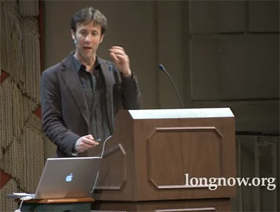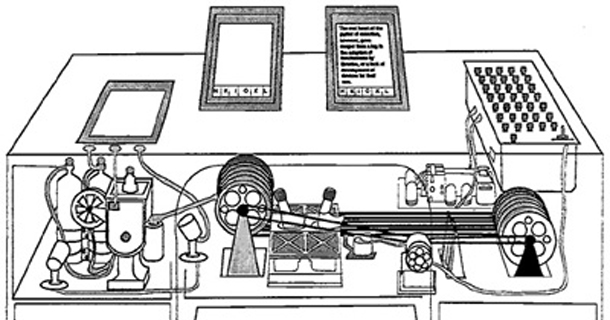In this video lecture, neuroscientist and fiction writer David Eagleman speaks for two hours about how the Internet, and how humans are connected to it, provides six essential steps to avoid the collapse of civilization. The steps are pretty obvious in retrospect:
- Try not to cough on one another
- Don’t lose things
- Tell each other faster
- Mitigate tyranny
- Get more brains involved in solving problems
- Try not to run out of energy
It’s well presented, reminiscent of James Burke’s Connections and The Day The Universe Changed. Well worth the nearly 2 hours of the lecture.







 @
@
 Tags:
Tags: 
 There’s a lot of news around Augmented Reality, fueled by a flurry of apps for location- and video-enabled smartphones like the Android and the iPhone. Here’s a good overview of how some of them are blending the world around us with the virtual world. Read the full article at
There’s a lot of news around Augmented Reality, fueled by a flurry of apps for location- and video-enabled smartphones like the Android and the iPhone. Here’s a good overview of how some of them are blending the world around us with the virtual world. Read the full article at 





 Like all images on the site, the topic icons are based on images used under Creative Commons or in the public domain. Originals can be found from the following links. Thanks to
Like all images on the site, the topic icons are based on images used under Creative Commons or in the public domain. Originals can be found from the following links. Thanks to